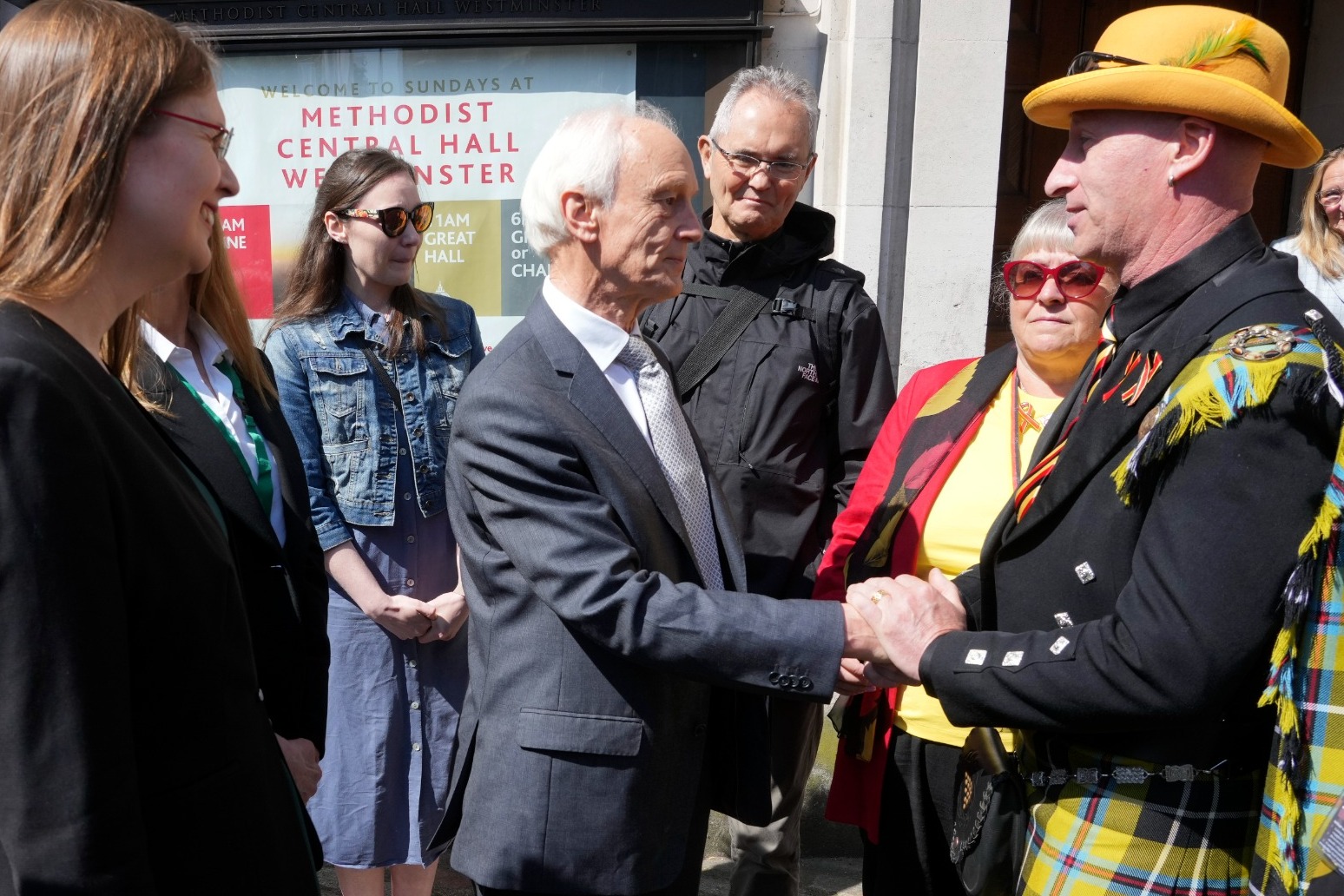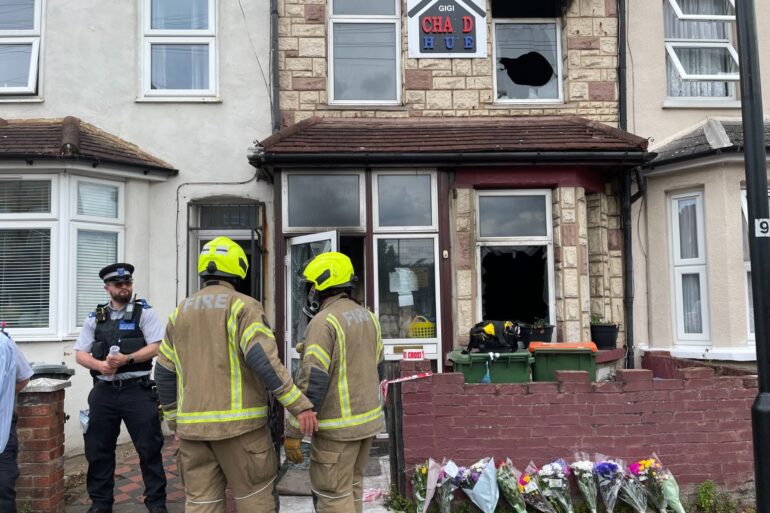-
 play_arrow
play_arrow
KL1 RADIO KL1 Radio Local Radio for West Norfolk
-
 play_arrow
play_arrow
KL DISCO KL Disco Playing Disco Music from the 70's onwards.24/7
-
 play_arrow
play_arrow
KL COUNTRY KL COUNTRY Playing New and Classic Country Music 24/7
-
 play_arrow
play_arrow
KL ROX KL ROX The best of New and Classic Rock.24/7
-
 play_arrow
play_arrow
KL SUMMER Summer Vibes 24/7 from KL1 Radio across West Norfolk
-
 play_arrow
play_arrow
KL CHILL Just Chill!
-
 play_arrow
play_arrow
KL POP The Best POP Hits all day Long!
-
 play_arrow
play_arrow
KL XTRA KL XTRA, The PopUp Station from KL1
music_note

The infected blood scandal “could largely have been avoided” and there was a “pervasive” cover-up to hide the truth, an inquiry into the biggest treatment disaster in the NHS has concluded.
Deliberate attempts were made to conceal the disaster, including evidence of Whitehall officials destroying documents, the Infected Blood Inquiry found.
Patients were knowingly exposed to unacceptable risks of infection, the probe found.
The 2,527-page report documents a “catalogue of failures” which had “catastrophic” consequences, not only among people infected with contaminated blood and blood products, but also their loved ones.
More than 30,000 people were infected with deadly viruses while they were receiving NHS care between the 1970s and 1990s, in a disaster described by inquiry chairman Sir Brian Langstaff as a “calamity”.
Sir Brian said “the scale of what happened is horrifying”, with more than 3,000 people dead as a result and survivors battling for decades to uncover the truth.
“Lord Winston famously called these events ‘the worst treatment disaster in the history of the NHS’. I have to report that it could largely, though not entirely, have been avoided,” his report states.
It highlights how “the truth has been hidden for decades” and there was evidence of Department of Health documents being “marked” for destruction in 1993.
“Viewing the response of the NHS and of government overall, the answer to the question ‘Was there a cover-up?’ is that there has been,” it states.
“Not in the sense of a handful of people plotting in an orchestrated conspiracy to mislead, but in a way that was more subtle, more pervasive and more chilling in its implications.
“In this way there has been a hiding of much of the truth.”
Sir Brian said the “level of suffering is difficult to comprehend” and that the harms done to people have been compounded by the reaction of successive governments, the NHS and the medical profession.
He said that repeated claims from successive governments that patients received the best medical treatment at the time, and that blood screening had been introduced at the earliest opportunity were “untrue”.
Much of the responsibility for failures identified in the report lie with successive governments, which failed to act in order to save face and expense, the inquiry said, with the current Government criticised for failing to act immediately on recommendations around compensation which were made last year.
Ministers have earmarked around £10 billion for a compensation package for those affected, which is expected to be announced on Tuesday or Wednesday.
Sir Brian said that, as the scandal unfolded, government decision-making was slow and protracted and a “doctor knows best” belief delayed action to protect patients.
Medics lost sight of what was known about the risks of infection and patients could have received safer care.
Some patients were “betrayed” because tests were carried out on them without their knowledge or consent.
Sir Brian said in a statement: “In families across the UK, people were treated by the NHS and over 30,000 were given infections which were life-shattering. Three thousand people have already died and that number is climbing week by week. Lives, dreams, friendships, families, finances were destroyed.
“This disaster was not an accident. The infections happened because those in authority – doctors, the blood services and successive governments – did not put patient safety first. The response of those in authority served to compound people’s suffering.
“The Government is right to accept that compensation must be paid. Now is the time for national recognition of this disaster and for proper compensation to all who have been wronged.”
Key failures highlighted in the report include:
– A failure to act over risks linked to contaminated blood – some of which were known before the NHS was established in 1948.
– The slowness of the response to the scandal; for instance, it was apparent by mid-1982 that there was a risk that the cause of Aids could be transmitted by blood and blood products but the government failed to take steps to reduce that risk.
– Tests on blood were not introduced as quickly as they could have been.
– Patients and the wider public were given false reassurances.
– There were delays informing people about their infections – sometimes for years – and they were told in “insensitive” and “inappropriate” ways.
– Patients were “cruelly” told repeatedly that they had received the best treatment available.
– People with bleeding disorders were treated without proper consent and research was carried out on them without their knowledge.
– Children with bleeding disorders who attended Treloar College, where pupils with haemophilia were treated at an on-site NHS centre, were treated as “objects for research”. The report said these children were given “multiple, riskier” treatments. Other children with bleeding disorders were also given treatment “unnecessarily”.
– Regulatory failures, including the licensing of dangerous products, and failure to remove them from the market when concerns were raised.
– Instead of ensuring a sufficient supply of UK-made treatments for haemophilia, the NHS continued to import the blood clotting blood plasma treatment Factor VIII from the US – where manufacturers paid high-risk donors, including prison inmates and drug users. The UK blood services continued to collect blood donations from prisons until 1984.
– In terms of blood transfusions, blood donors were not screened properly and there were delays in blood screening. Too many transfusions were given when they were not necessarily needed.
Sir Brian has made a series of recommendations on compensation, recognising those affected, how lessons can be learned from the disaster and incorporated into medical training, strengthening duty of candour regulations, and addressing a culture of “defensiveness”.
Speaking ahead of the inquiry, a Government spokesman said: “This was an appalling tragedy that never should have happened.
“We are clear that justice needs to be done and swiftly.
“We will continue to listen carefully to the community as we address this dreadful scandal.”
Prime Minister Rishi Sunak is expected to make an apology in the House of Commons later on Monday.
Public inquiries are prohibited from making any recommendations about prosecutions but other countries affected by the scandal have seen ministers brought before the courts.
Published: by Radio NewsHub

Similar posts
Upcoming shows

Weekend Back Trax
6:00 am - 8:00 am

Kelvin Scott – Weekend Breakfast
8:00 am - 11:00 am

Vicky Green – Classic Hit Lunchtime
11:00 am - 1:00 pm

Darren Furzey – Classic Hit Weekend
1:00 pm - 3:00 pm

Lee Vincent – Classic Hit Saturday
3:00 pm - 6:00 pm
-

Paris Olympics off to a sodden start with a rain-drenched opening ceremony

Three children who died in house fire are ‘missed beyond measure’, parents say

John Hunt says messages of support ‘like a hug’ following family crossbow deaths

Police officer under criminal investigation for assault after airport video

Hunstanton Fossil Hunting Trip – 18th August 2024
Message Us Now!
Copyright The Mediasite UK - 2023.



